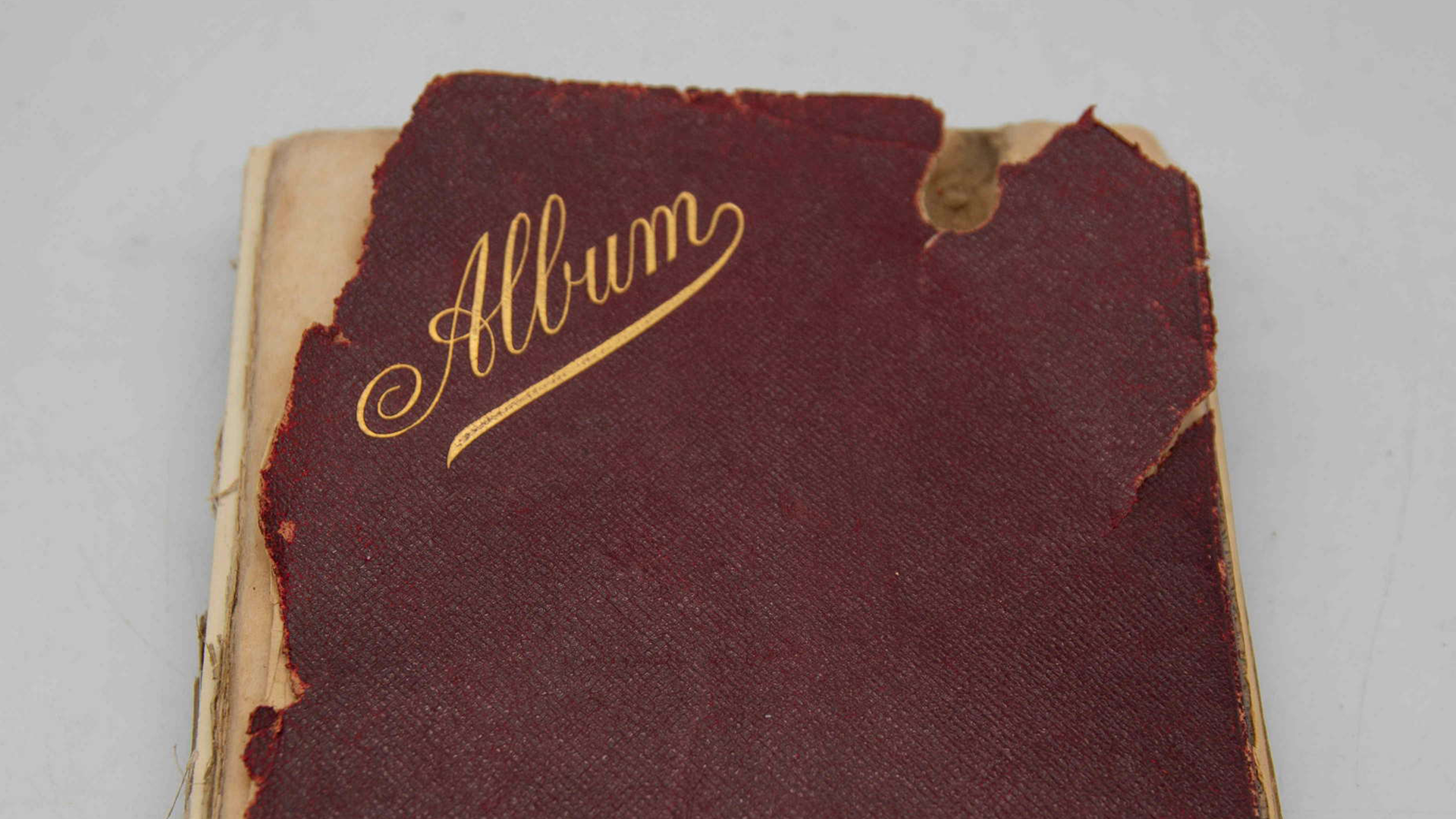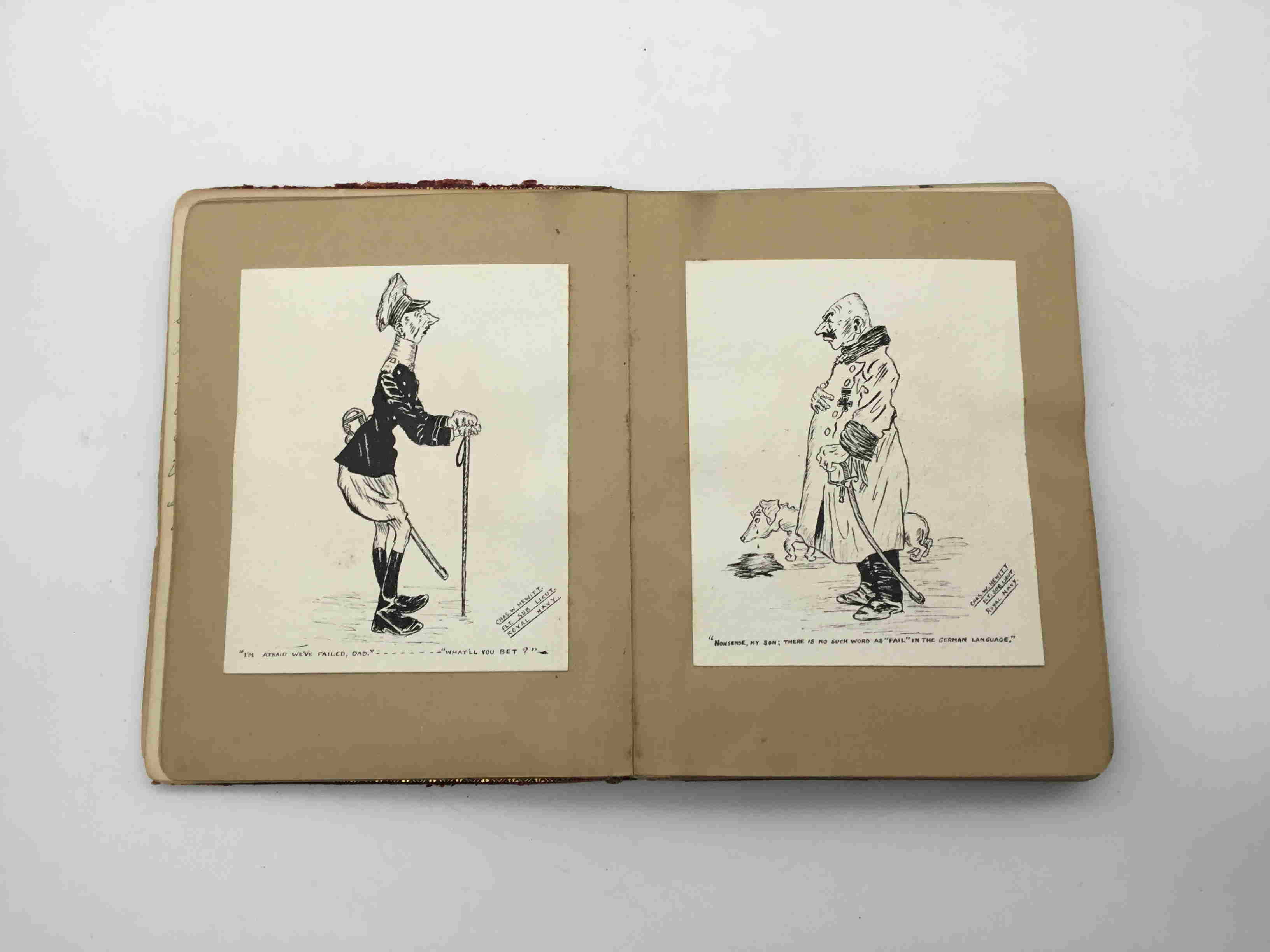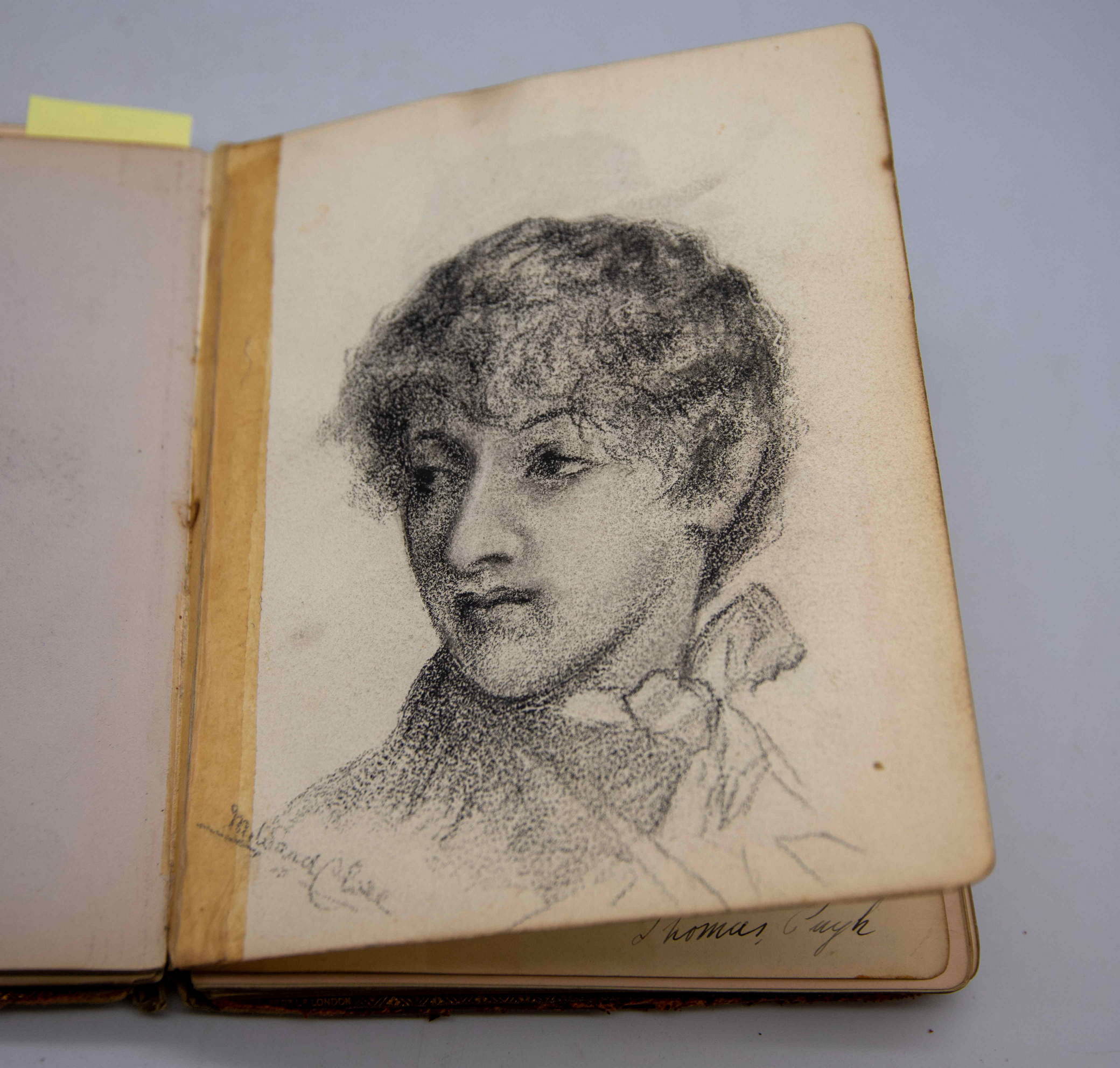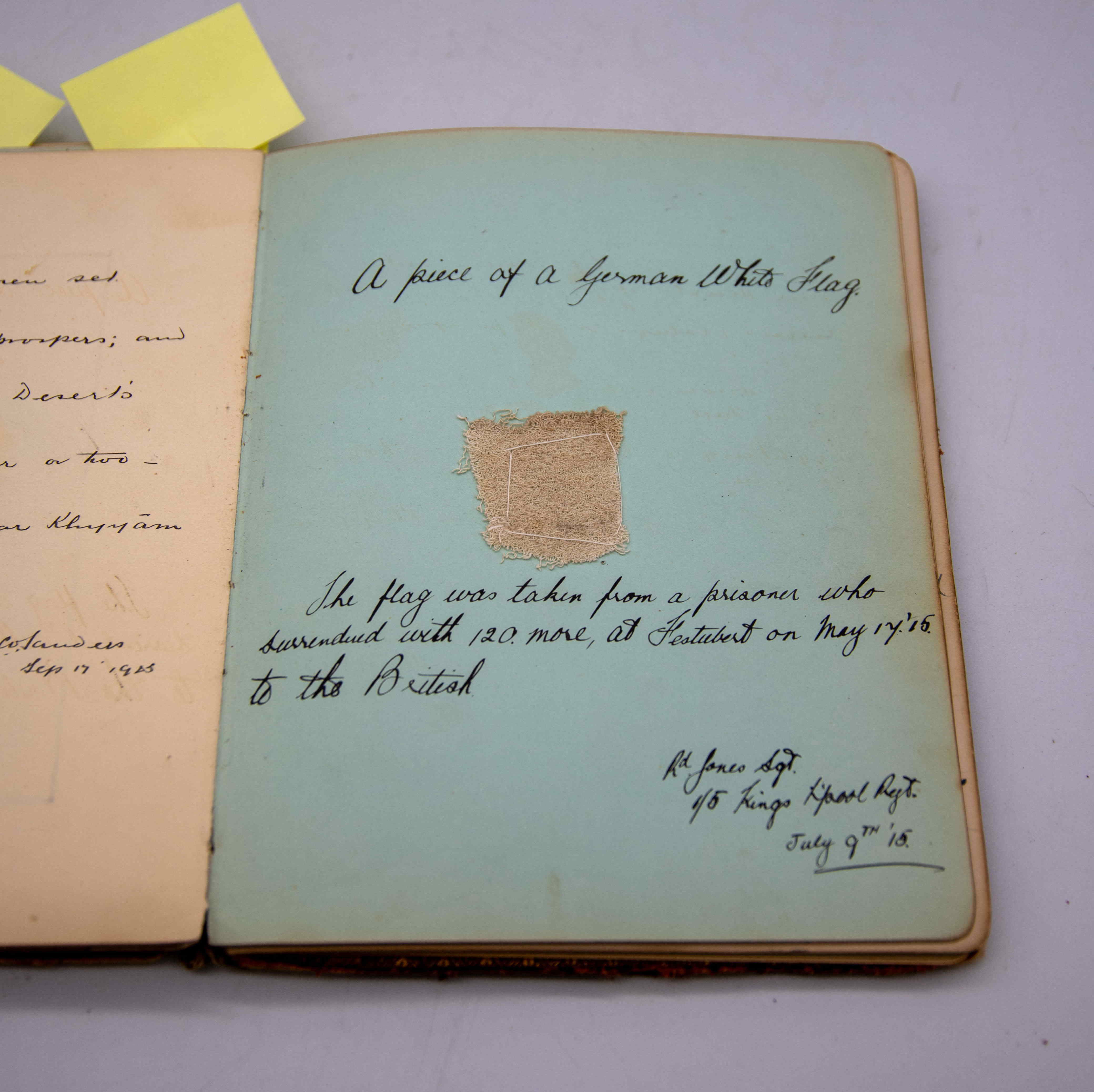
Forgotten album that sheds light on 1914 Christmas football game truce, sells for £4.7k

A previously unknown account of the famous 1914 Christmas truce football match between British and German soldiers has emerged from a century-old nurse’s album.
The unique book, found in a Derby house clearance, sold at auction for £4,685.
It belonged to Voluntary Aid Detachment (VAD) nurse Maude Lineham (1883-1965), who worked at Derby’s Spondon House Hospital, Derbyshire Royal Infirmary and Leicester Royal Infirmary during the First World War.

Nurse Lineham encouraged her patients to write in her album, capturing the voices of around 90 servicemen from various regiments through poems, sketches and reflections on their wartime experiences.
Among the most poignant entries is an eight-page, first-hand account of the iconic 1914 Christmas Day truce, written by John J Ferguson of the Seaforth Highlanders.
Wounded at Messines on Boxing Day, just a day after the truce, he titled his account "Peace on Earth", reflecting on the temporary friendship born out of the season’s spirit.
In his narrative, Mr Ferguson describes Christmas Eve in the trenches: "Pumps going night and day but could never bring our water line to less than two feet.
"It was almost dark and being only 100 yards from the German trenches it was almost possible to listen to the conversations ... very little sniping had been done by either side, we thought they were exceptionally quiet.
"Good … Will … Towards … Men.
"We started singing carols. They applauded us. They sang, and we replied. I don't think we were as harmonious as the Germans … They had some fine voices among them."

That night, Mr Ferguson and three others ventured into No Man's Land to exchange cigarettes and greetings with German soldiers.
"What a sight it was, little groups of Germans and British extending almost the length of our front. Out of the darkness came laughter and talking, lighted cigarettes and the flash of matches," he wrote.
"Here we were laughing and talking to men whom only a few hours earlier we were trying to kill.
"I was surprised at the good English, especially of Fritz. He told me he had been doing business in Edinburgh and west of Scotland and only left in August when called up. He knew our regiment well and had seen them in Edinburgh Castle."
Some of the men went over to No Man's Land to play an impromptu game of football, take photographs and exchange gifts.
"They had arranged not to fire for 48 hours, but warned us the Prussians on their left would still be sniping. They kept their word and neither of us fired for two days."
"We had made friends with the enemy and all day kept calling and joking across the trenches."
One day later, Mr Ferguson was severely wounded, losing his left arm.
“Dec 26 … a shell struck me. Left arm amputated at elbow and shrapnel wound left thigh. In all I had six pieces of shrapnel and two bullets removed but I knew it was not our new friends, the Bavarians, who shot me, but the artillery of the Prussians."

He fondly recalled the kindness of the nurses who cared for him, particularly those at Derbyshire Royal Infirmary.
"Words fail me in trying to express my appreciation for the attention and kindness of our sister and nurses of Ward 6," he wrote.
"I wish I was a woman … I’d be a nurse... They're champion."
Other moving entries in Nurse Lineham’s album include a fragment of a German white surrender flag and a sombre account of the sinking of the hospital ship Anglia in 1915, written by a survivor who narrowly escaped.
Matt Crowson, head of militaria at Hansons Auctioneers, described the album as "an invaluable glimpse into wartime humanity and the resilience of those involved".









